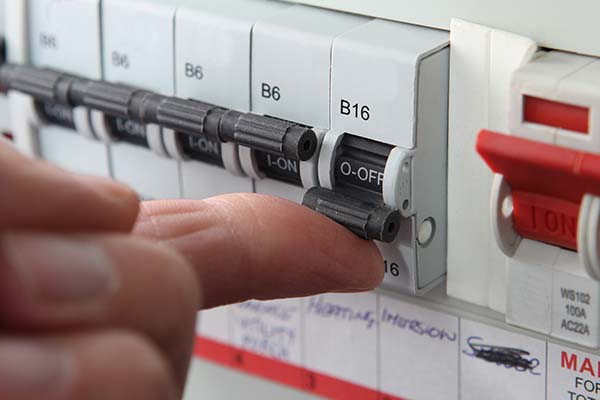
Tradesman Insurance
As a tradesman, you belong to a group of workers skilled in a variety of highly specialised trades and crafts. The term ‘tradesmen’ refers to builders, plumbers, electricians, carpenters, roofers and more. Because the definition of tradesmen is so broad, it can be difficult to choose the cover that best protects against the specific risks you face. The following provides an overview of the main types of cover that are applicable to most tradesmen.

Liability
Although the risks between different tradesman occupations vary considerably (for example, an electrician and a brick layer on high scaffolding will have different risks), one common risk among all tradesmen is liability. Tradesmen typically work away from their own premises, meaning they are almost always working with and on a third party’s property. The risk of injuring third parties or damaging their property looms over a tradesman’s daily operations.
The following types of liability cover should be considered to account for a tradesman inherently high liability risks (although not all are legally required):
- Employers’ liability is mandatory if you have employees besides ‘close’ family members. It insures against injuries sustained or damage caused as a result of your employees’ work.
- Public liability is strongly recommended to protect against the threat of injuring third parties or damaging their property. You may be required to purchase public liability in order to comply with your customers’ contractual conditions.
- Products liability is defence against accidental third-party injury or damage caused by your products. Products include mostly everything manufactured, sold or tested by your employees.
- Professional indemnity can cover you against claims of compensation made by a client if you have made a mistake or are found to have been negligent.
Motor Fleet Insurance
Your job would be difficult without a vehicle—you need a reliable way to arrive at the worksite with your tools. Vans are the easiest method of transport to bring people and necessary tools to the worksite, and commercial motor insurance is required if your business operations include driving.
Depending on the job, you may need cherry pickers, excavators, diggers or other equipment, which may also need motor insurance in order to comply with the Road Traffic Act.
Personal Accident
As an employer, if you get injured on the job you cannot claim against yourself under the liability policy. It is likely the same for your partners. To make sure your key personnel are covered, purchase personal accident insurance. It can cover death, disablement and loss of limbs or sight.
Because personal accident can provide additional cover for crucial employees or directors, it can extend beyond mere working hours. You can find policies that are purely occupational, meaning they cover only occupational hazards—or policies that are 24-hour, meaning they provide protection all day, every day.
Own Tools and Equipment
Your tools serve as an extension of yourself—without them your job becomes alarmingly difficult. Consider tools and equipment cover, which can be offered on a ‘commercial all risks’ basis, meaning any risk not mentioned in the contract is covered. It insures tools and larger equipment such as excavators and diggers.
Theft from unattended vehicles is often excluded, but you can purchase an extension to account for this gap. Because motor insurance does not cover the tools and equipment inside your vehicles, tradesmen usually purchase commercial motor cover and a plant tools and equipment policy.
Based on your business operations, you can split cover to apply only to your own premises or to your worksites.
Hired-in Plant
The machinery and tools used by tradesmen are expensive, specialised pieces of equipment. Because purchasing machinery or tools comes with very high up-front costs, many tradesmen opt to hire the necessary equipment. Hiring equipment exposes tradesmen to more risks, but those can be mitigated by purchasing hired-in plant cover.
Hired-in plant insurance covers the hired equipment in the event of loss, theft or damage. The owner of the plant will usually require you to purchase hired-in plant cover as part of your contract. When working on somebody else’s premises, you are still responsible for the equipment you have hired. This equipment is vital to get your job done, so do not leave it up to chance.
Contract Works
As you work to complete a project, you cannot forget that you are working under the conditions of a contract. Imagine: As you near the completion of a six-month construction project, your building suffers irreparable damage and you must start all over. The loss would be massive. You can help protect against these ever-present threats by purchasing contract works cover.
Contract works can cover temporary and permanent works executed according to the terms of a contract. It can also cover materials which have not yet been incorporated into the work prior to the loss, as well as own and hired plant and tools and equipment on-site or in transit.
H&S, HR & e-Learing
Tradesmen face various laws and regulations, our online H&S, HR and e-Learning platform will help you manage your risk assessments, employment laws and our e-Learning platform will provide access to First Aid, H&S Law courses and much more.
Contractors Quotes
Contractors Quotes
